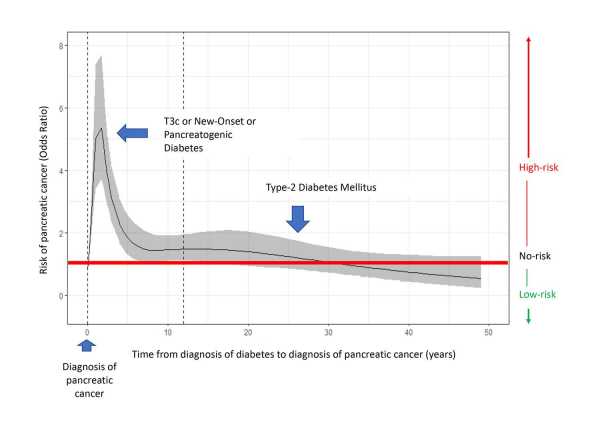
15 May Higher Risk of Pancreatic Cancer With Diabetes Subtype
MedicalResearch.com Interview with:

Dr. Malats
Dr. Núria Malats, MD PhD,
Head of the Genetic and Molecular Epidemiology Group
Spanish National Cancer Research Centre (CNIO)
MedicalResearch.com: What is the background for this study?
Response: The high mortality of pancreatic cancer is a consequence of late diagnosis because of the absence of symptoms in the earliest stages, and defining risk populations is therefore crucial to be able to carry out diagnostic tests that reveal the presence of the tumour as early as possible.
Diabetes and pancreatic cancer are connected because the pancreas secretes insulin; in diabetic people, this does not occur in a normal way. It is estimated that around 50% of patients with pancreatic cancer presents diabetes. But it is an outstanding challenge for researchers to figure out which is the cause and which is the consequence.
To conduct the study, the team used data from more than 3,500 persons from PanGenEU, a large European study involving centres from six countries, including Spain, and led by Malats, to analyse the relationship between multiple risk factors and pancreatic cancer.
What is meant by Type 3c diabetes?
Response: Type 3c, or pancreatogenic, diabetes is characterised by an inflammation of the pancreas that interrupts insulin production. It is estimated to represent around 5-10% of all diabetes cases in Western countries, but currently there are few specific markers for it so that it is often misdiagnosed as diabetes type 2. More precise markers to identify it correctly are required; not only to provide adequate treatment to patients but also because the CNIO now shows that a correct classification is crucial for the early diagnosis of pancreatic cancer.
MedicalResearch.com: What are the main findings?
Response: The CNIO team of researchers confirms that a high percentage of cases of diabetes type 3c is caused by pancreatic cancer; this finding should prompt further research to allow these patients to enter in early pancreatic cancer diagnosis interventions to increase their survival rate.

MedicalResearch.com: What should readers take away from your report?
Response: This type of cancer has a high mortality rate – around 95% – since it is usually diagnosed too late because of the absence of symptoms in its early stages. Therefore, the finding of the CNIO would imply that it is possible to make an earlier diagnosis of this disease since it allows classifying patients with diabetes type 3c as a population with an increased probability of having early stage pancreatic cancer.
MedicalResearch.com: What recommendations do you have for future research as a result of this work?
Response: Further research on this topic includes to better characterise Type 3c diabetes mellitus to differentiate it from the classical Type-2 diabetes mellitus, to understand the mechanisms through which pancreatic cancer produces this type of diabetes, and to integrate this factor in an equation with other factors (obesity, smoking habit, alcohol consumption, among others) to help primary care physicians to better identify high-risk population for pancreatic cancer.
Citation:
Deciphering the complex interplay between pancreatic cancer, diabetes mellitus subtypes and obesity/BMI through causal inference and mediation analyses. Esther Molina-Montes et al (Gut, 2020). DOI: 10.1136/gutjnl-2019-319990
JOIN OUR EMAIL LIST
[mailpoet_form id="5"]We respect your privacy and will never share your details.
[last-modified]
The information on MedicalResearch.com is provided for educational purposes only, and is in no way intended to diagnose, cure, or treat any medical or other condition. Always seek the advice of your physician or other qualified health and ask your doctor any questions you may have regarding a medical condition. In addition to all other limitations and disclaimers in this agreement, service provider and its third party providers disclaim any liability or loss in connection with the content provided on this website.
Last Updated on May 15, 2020 by Marie Benz MD FAAD
